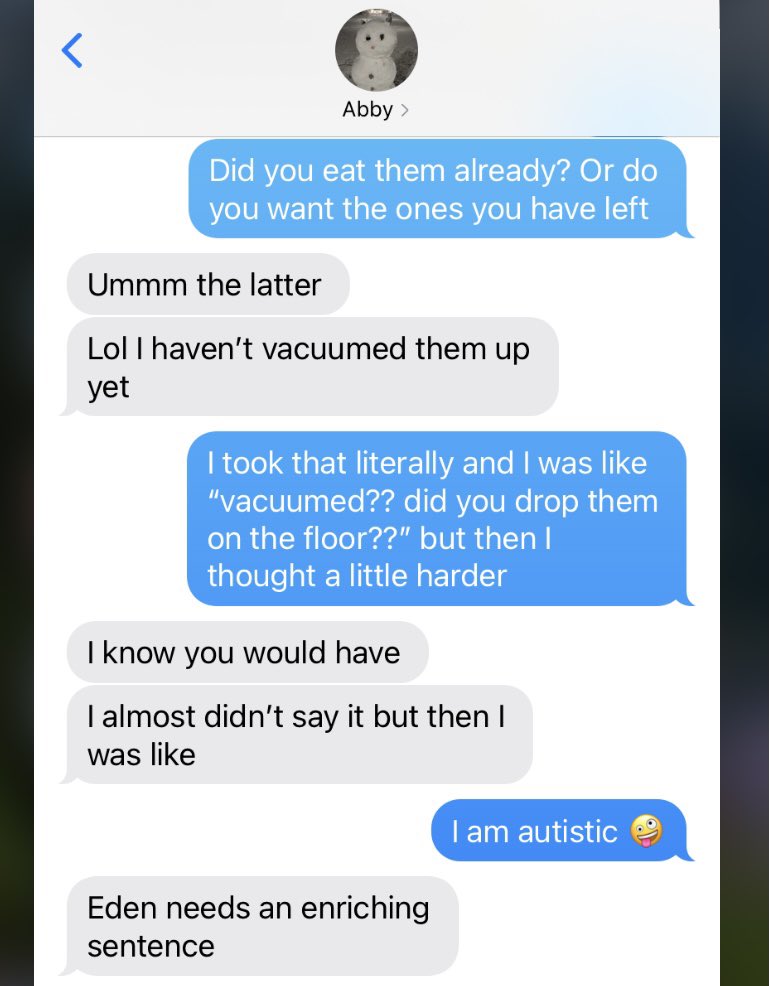
There’s been some discussion in the autistic community about masking, representation, etc. specifically on TikTok.
I think one important thing for everyone to note is that TikTok is not a very accessible medium of communication for a lot of autistic people, including myself.
I think one important thing for everyone to note is that TikTok is not a very accessible medium of communication for a lot of autistic people, including myself.
The reason why there aren’t a ton of high-profile autistic creators on TikTok who have trouble with spoken communication, etc. is I think partially because of the spoken language, video-based format of the app itself.
It’s also because of the way the algorithm is set up.
It’s also because of the way the algorithm is set up.
I personally have a super hard time articulating myself verbally in the manner that TikTok requires. So I use Instagram, Twitter, Tumblr, etc. to do my advocacy work.
And the thing about that is, nobody would know I have that difficulty just by reading my writing.
And the thing about that is, nobody would know I have that difficulty just by reading my writing.
The other aspect is that TikTok’s algorithm automatically favors autistic people who are able to mask to fit NT definitions of what it means to be “articulate,” and “engaging” on camera.
NTs are more likely to interact with videos of autistic people who appear that way.
NTs are more likely to interact with videos of autistic people who appear that way.
That’s nobody’s fault but wider society. And from what I’ve observed, the advocates on TikTok who present that way recognize that, and do their best to uplift more marginalized voices.
I think that we should work together as a community to make TikTok more accessible.
I think that we should work together as a community to make TikTok more accessible.
But TikTok is also just one platform among many. And it’s completely okay if not all autistic people feel comfortable using it as a medium for advocacy work.
I could start using TikTok to speak about issues that matter to me, but I would find it really difficult. That’s okay.
I could start using TikTok to speak about issues that matter to me, but I would find it really difficult. That’s okay.
So I think we need to recognize that different social media platforms cater to different people’s communication abilities.
TikTok will probably never be as accessible to me as it is for many others, and I’m okay with that.
It’s okay for my advocacy to be based in writing.
TikTok will probably never be as accessible to me as it is for many others, and I’m okay with that.
It’s okay for my advocacy to be based in writing.
• • •
Missing some Tweet in this thread? You can try to
force a refresh




